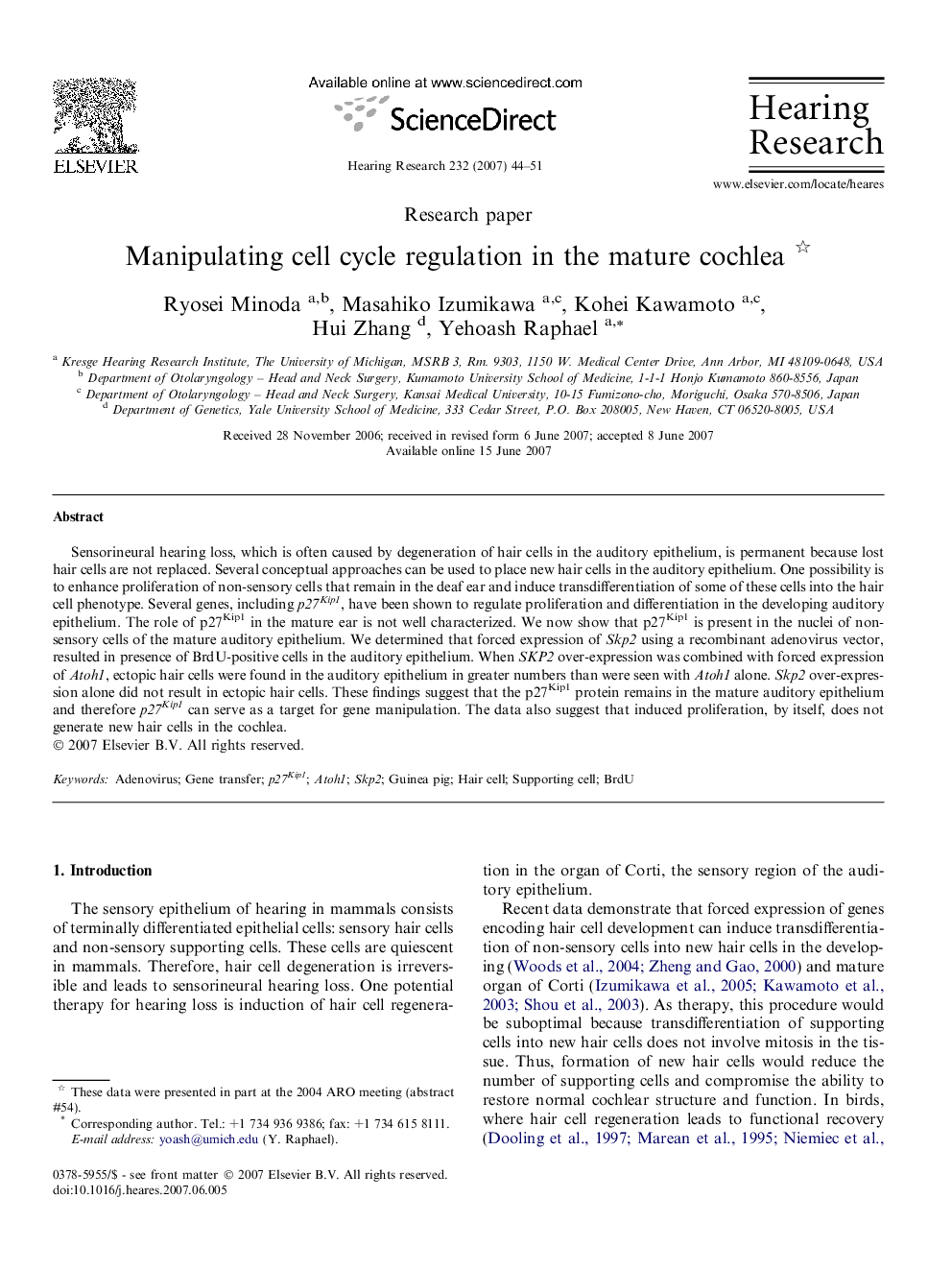| Article ID | Journal | Published Year | Pages | File Type |
|---|---|---|---|---|
| 4356155 | Hearing Research | 2007 | 8 Pages |
Abstract
Sensorineural hearing loss, which is often caused by degeneration of hair cells in the auditory epithelium, is permanent because lost hair cells are not replaced. Several conceptual approaches can be used to place new hair cells in the auditory epithelium. One possibility is to enhance proliferation of non-sensory cells that remain in the deaf ear and induce transdifferentiation of some of these cells into the hair cell phenotype. Several genes, including p27Kip1, have been shown to regulate proliferation and differentiation in the developing auditory epithelium. The role of p27Kip1 in the mature ear is not well characterized. We now show that p27Kip1 is present in the nuclei of non-sensory cells of the mature auditory epithelium. We determined that forced expression of Skp2 using a recombinant adenovirus vector, resulted in presence of BrdU-positive cells in the auditory epithelium. When SKP2 over-expression was combined with forced expression of Atoh1, ectopic hair cells were found in the auditory epithelium in greater numbers than were seen with Atoh1 alone. Skp2 over-expression alone did not result in ectopic hair cells. These findings suggest that the p27Kip1 protein remains in the mature auditory epithelium and therefore p27Kip1 can serve as a target for gene manipulation. The data also suggest that induced proliferation, by itself, does not generate new hair cells in the cochlea.
Related Topics
Life Sciences
Neuroscience
Sensory Systems
Authors
Ryosei Minoda, Masahiko Izumikawa, Kohei Kawamoto, Hui Zhang, Yehoash Raphael,
